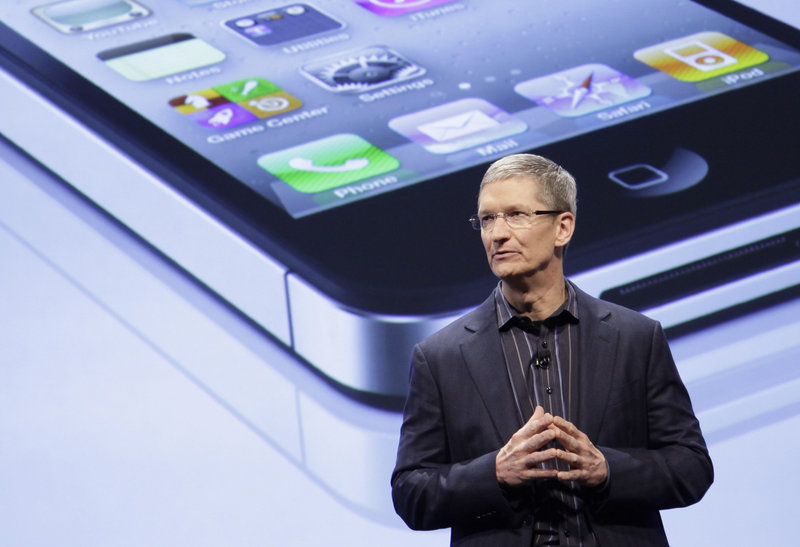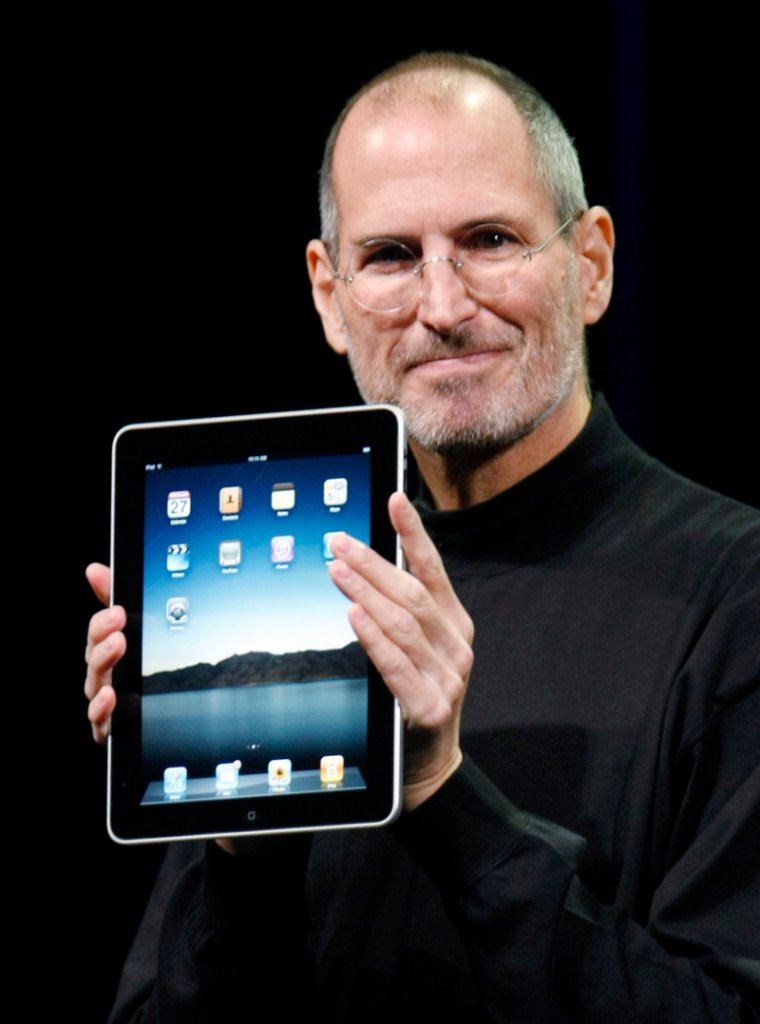Tim Cook is an operational whiz. Philip Schiller is a marketing maven. Jonathan Ive is a design visionary.
The men at the helm of Apple are among the best at what they do. But none seems to have that spark of genius like Steve Jobs — an industry oddity studied by business school students for his creative vision, uncanny sense of what consumers want and shrewd leadership. And that’s the central issue Apple faces, now that Jobs has relinquished day-to-day control.
Apple’s breakaway success has largely been defined by Jobs’s ability to repeatedly develop ground-breaking computers and electronics. But the super-competitive marketplace ensured that the dominance of many Apple products was short-lived.
The iPhone, introduced in 2007, briefly held the title of top smartphone. Now phones using Google’s Android software have a larger share of the market. The iPad has been a runaway success, but the Motorola Xoom and Samsung Galaxy are nipping at its lead. And while Apple is expected to account for 74 percent of media tablet shipments in 2011, that portion will fall to 44 percent in 2015, according to IHS iSuppli, an industry analytics group.
As Cook takes over as chief executive, the big question is whether he and Jobs’ hand-picked team can continue to conjure up the next big thing in consumer electronics to keep the company’s success going.
“Apple is the steak, and Jobs is the sizzle. Now what do you do with a company that is so much about the sizzle?” asked Jeffrey Kagan, an independent tech industry analyst.
The leadership transition has been long in the making, and Jobs, known for his controlling style and discipline, surely left the company with a clear product road map for the next couple of years, analysts say.
That confidence left investors only slightly rattled, with company’s stock down 0.7 percent, to $373.72, on Thursday.
Cook, 50, is a familiar face at Apple and in the industry. A fitness buff with a Jobs-esque obsession with perfection and discipline, Cook has been with Apple for 13 years. He has overseen Apple’s massive production lines, and he temporarily led the company during Jobs’s medical leaves of absence in 2004 and 2009 for a rare form of pancreatic cancer and a liver transplant.
In a letter emailed to employees on Thursday, Cook promised that things wouldn’t change.
“I want you to be confident that Apple is not going to change. I cherish and celebrate Apple’s unique principles and values. Steve built a company and culture that is unlike any other in the world and we are going to stay true to that — it is in our DNA,” Cook wrote.
Cook built a supply chain bigger than anyone at Apple could have imagined and distributed products in a way that even Wal-Mart’s Sam Walton would envy. That allowed the company to make, for example, a quality tablet computer that few have been able to undercut in price, said Eric Bleeker, an analyst at The Motley Fool.
“Those are the fingerprints of Tim Cook right there,” Bleeker said.
And Apple’s software, iOS, can be extended to new products.
“If they wanted to do an Apple-branded TV, they can just expand iOS to the TV. It doesn’t need to be anything mind-blowing,” Bleeker said.
Cook will have to define his own path at the company, some analysts said.
“Cook needs to be Cook. There are few people who have come around in business like Steve Jobs in literally the last 50 years, and Cook doesn’t want to be constantly compared,” said Rob Kaplan, a professor of management at Harvard Business School.
Those comparisons will be hard to shake. A mythology surrounds Jobs and his willingness to take risks, his creativity and his drive.
Rather than respond to surveys, Jobs developed ground-breaking products by relying on his instincts and own vision.
“Steve had such a great understanding of what people want but couldn’t articulate,” said Guy Kawasaki, who held the title of Apple’s chief evangelist. Jobs had a unique brain with his “left hemisphere connecting with his right hemisphere,” Kawasaki said.
After dropping out of Reed College in 1972, Jobs began sitting in on a calligraphy class at the Oregon liberal arts school. It was one of the best decisions he’d ever made, Jobs said in a commencement address at Stanford University in 2005.
He said an understanding of script, font and the art of text made its way into the personal computer and still defines his artistic sense today.
“Stay hungry. Stay foolish,” he advised Stanford students.
Send questions/comments to the editors.




Success. Please wait for the page to reload. If the page does not reload within 5 seconds, please refresh the page.
Enter your email and password to access comments.
Hi, to comment on stories you must . This profile is in addition to your subscription and website login.
Already have a commenting profile? .
Invalid username/password.
Please check your email to confirm and complete your registration.
Only subscribers are eligible to post comments. Please subscribe or login first for digital access. Here’s why.
Use the form below to reset your password. When you've submitted your account email, we will send an email with a reset code.